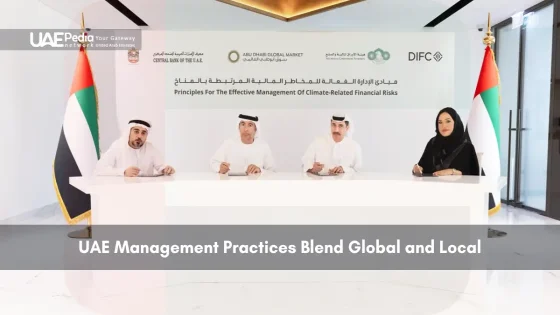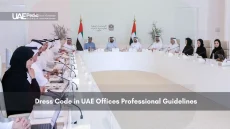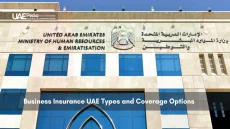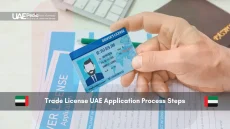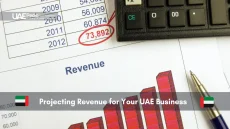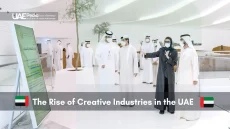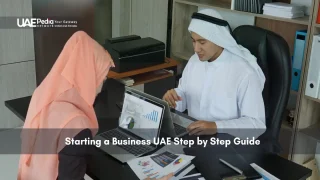What if the secret to thriving in one of the world’s fastest-evolving business landscapes lies not in chasing trends, but in balancing them with timeless values? The United Arab Emirates’ approach to leadership offers a masterclass in this delicate dance.
Here, detailed planning coexists with spontaneous coffee meetings in airy majlis spaces. Visionary tech hubs rise beside traditional souks, reflecting how modern organizations honor both innovation and heritage. This unique blend shapes everything from team dynamics to long-term strategies.
Local companies often prioritize relationship-building over rushed transactions. Leaders might spend weeks nurturing trust before finalizing deals—a practice that surprises newcomers but fuels lasting partnerships. Meanwhile, diverse teams bring global perspectives while adapting to regional rhythms, creating workplaces where 9-to-5 rigidity gives way to cultural awareness.
Three things you’ll discover in this guide:
- How traditional values shape cutting-edge business strategies
- Why trust-building often outweighs tight deadlines
- Ways companies balance rapid growth with employee well-being
UAE Business Culture Blends Tradition with Hyper-Growth
Where else can you find AI-driven startups sharing workspace with artisans crafting ancient designs? Welcome to a business ecosystem where tradition isn’t replaced—it’s upgraded. The country’s economic heartbeat pulses with both hyper-modern logistics and the warmth of Bedouin hospitality.
Innovation Meets Tradition in UAE Workplaces
Walk through Dubai’s gold souk, and you’ll spot vendors using blockchain for inventory beside handwritten ledgers. This duality shapes how teams operate. One tech CEO told us:
“Our Friday brainstorming sessions start with Arabic coffee rituals—it grounds us before we dive into metaverse projects.”
Local policies fuel this balance. Forty-six specialised free zones now attract global giants with 0% corporate tax, 100% foreign ownership, and sector-specific hubs with 0 % corporate tax, 100 % foreign ownership.
Managers who invest deliberate time in trust-building rituals—such as shared coffee ceremonies before strategy sessions—report higher economic returns and fewer contractual disputes when negotiating across cultures.Ref.: “Brett, J. M. & Mitchell, T. (2020). Research: How to Build Trust with Business Partners from Other Cultures. Harvard Business Review.” [!]
The Impact of Expatriate Dynamics
Expatriates constitute nearly 90% of the UAE’s population, a demographic reality that underpins the country’s multicultural workforce, and offices become mini-UN assemblies. Picture this: a Filipino marketer suggests Ramadan campaign tweaks while an Emirati colleague shares ancestral trade wisdom. Challenges? Sure—like aligning holiday schedules across 15 nationalities. But the payoff? Teams that innovate through cultural cross-pollination.
Here’s the twist: even global firms adapt to local rhythms. Western-style performance reviews get paired with relationship-focused wasta networks. Quick deals? Rare. Lasting alliances built over shared meals? Standard.
Could your organization thrive here? If you value agility steeped in heritage, absolutely.
Expatriates constitute nearly 90 % of the UAE’s population, a demographic reality that underpins the country’s multicultural workforce and shapes HR practices from onboarding to holiday scheduling.Ref.: “TOI World Desk. (2025). What is Emiratisation? The UAE’s push to move over half of insurance sector jobs in Emirati hands by 2030. The Times of India.” [!]
Navigating Cultural Norms and Business Etiquette
Imagine stepping into a boardroom where handshakes linger like old friends reuniting—this isn’t just politeness, it’s the foundation of trust. Cultural awareness here isn’t a checkbox; it’s the invisible thread weaving through every business interaction.
Respect for Religion and Local Customs
Friday prayers pause meetings. Ramadan shifts working hours. These aren’t inconveniences—they’re sacred rhythms. One HR director shared: “We adjust project timelines months in advance to honor these traditions.” Avoid scheduling critical decisions during religious holidays, and always use your right hand for gestures or passing items—it’s considered cleaner in local culture.
UAE labour law mandates a two-hour daily reduction in private-sector working hours during Ramadan, requiring managers to reset deadlines and staffing rosters to remain compliant.Ref.: “Ministry of Human Resources & Emiratisation. (2025). MoHRE: Reduction of 2 working hours during Ramadan for private sector employees. Government of the United Arab Emirates.” [!]
Greetings, Dress Codes, and Social Protocols
First impressions start with “As-salaam Alaikum” (Peace be upon you) and light handshakes—men wait for women to initiate physical contact. Dress codes blend modesty with professionalism:
| Setting | Men | Women |
|---|---|---|
| Corporate Offices | Tailored suits or kandura | Knee-length skirts + blazers or abayas |
| Casual Meetings | Collared shirts | High-neck tops + full-length pants |
Pro tip: Mirror your counterpart’s posture. Leaning back signals respect, while crossed legs can seem too casual. During negotiations, avoid aggressive eye contact—it’s seen as confrontational. Human resources teams often train new employees on these nuances to prevent misunderstandings.
Essential UAE management practices: Integrating Global and Local Approaches
Picture a tech startup using agile sprints—but pausing each afternoon for family-style lunches where ideas simmer over cardamom coffee. This isn’t corporate theater; it’s how modern business culture thrives here. Companies that succeed often act like cultural translators, reshaping global playbooks to fit regional rhythms.
Strategies for Aligning Global Techniques with Local Realities
One logistics firm cracked the code by pairing Silicon Valley-style data dashboards with weekly majlis feedback sessions. “Our drivers share route challenges over dates and karak tea,” their COO told us. “Those chats improve our algorithms more than any survey.”
Three ways teams blend innovation with tradition:
- Pace with purpose: Quarterly OKRs get adjusted during Ramadan’s shorter workdays
- Train across cultures: Leadership programs mix AI certifications with Arabic negotiation etiquette
- Celebrate hybrid wins: A fintech company rewards employees who bridge digital tools and local trust-building
Visionary leaders know growth springs from balance. When a European bank entered the market, they kept global fraud detection systems but hired Emirati relationship managers. Result? 40% faster client onboarding through culturally savvy teams.
Career development here often means mastering this duality. Young professionals learn to pitch startups in boardrooms and desert retreats. As one HR director put it: “We don’t want employees choosing between global skills and local roots—we need both.”
Could your company benefit from this approach? Try mapping one global process against these questions: Does it honor relationship-building time? Could local expertise make it 15% more effective? Sometimes, the best innovations aren’t new—they’re smart fusions.
Leadership, Hierarchy, and Decision-Making in the UAE
Think of leadership here as steering a dhow sailboat—captains command respect, but every crew member’s voice matters when navigating shifting tides. This balance between clear authority and collaborative input defines how organizations chart their course.
Global interviews with 400+ executives show that leaders who pair clear authority with structured listening sessions earn stronger cross-cultural trust and team commitment—an approach aligning with the UAE’s “paternalistic-consensus” model.Ref.: “Javidan, M. & Zaheer, A. (2019). How Leaders Around the World Build Trust Across Cultures. Harvard Business Review.” [!]
The Navigator’s Dual Role
Managers act as both decision-makers and cultural custodians. One retail executive shared: “My team expects me to set direction firmly, but also seek their perspectives during Friday feedback circles.” This paternalistic approach blends mentorship with accountability—senior leaders protect company values while nurturing employee growth.
Consensus Without Chaos
Decisions often flow through multiple tiers before final approval. A tech firm’s product launch illustrates this: engineers prototype solutions, department heads assess risks, then C-suite executives greenlight projects aligned with local laws. Though hierarchical, this layered process ensures policies meet both innovation goals and cultural expectations.
Three tips for modern leaders:
- Respect traditional reporting levels while creating safe spaces for team input
- Frame new ideas as enhancements to existing systems (“This supports our growth by…”)
- Celebrate quick wins to build trust in progressive methods
Time-sensitive decisions? Move swiftly—but always explain the “why” to maintain respect. When a logistics company faced delivery delays, managers consulted drivers before adjusting routes. Result? Faster solutions and stronger team cohesion.
Managing Time, Priorities, and Change
Ever watched a desert sunset shift from gold to indigo in minutes? That’s how time flows here—fluid, purposeful, and full of unexpected beauty. Professionals master this rhythm, blending structured working hours with cultural flexibility to drive progress without burnout.
Flexibility in Time Management and Scheduling
Meetings might start late but end with breakthroughs over karak tea. One tech firm reimagined deadlines during Ramadan: core hours shifted to cooler evenings, boosting productivity by 30%. Teams often prioritize relationships—a 15-minute chat about family matters can unlock smoother collaborations later.
Best practices for dynamic environments:
- Cluster video calls between 10 AM–2 PM when energy peaks
- Use cloud tools for async updates across time zones
- Build buffer days into project timelines for cultural events
Embracing Change with Visionary Leadership
When a logistics company automated warehouse processes, leaders hosted “innovation majlis” sessions. Workers shared concerns over dates, shaping a phased rollout that retained 92% of the workforce. As one CEO noted: “Change here isn’t a mandate—it’s a conversation with coffee stains.”
Forward-thinking policies fuel this balance. Hybrid work models pair fixed office days with remote flexibility. Wellness benefits like midday gym breaks prevent burnout. For deeper insights, explore this guide to regional business norms.
Pro tip: Track weekly wins, not just quarterly goals. Celebrating small adaptations keeps teams motivated amid shifting priorities. After all, the best plans here aren’t rigid—they’re sand dunes reshaped by wise winds.
Building Trust: Communication, Negotiation, and Relationship Cultivation
Ever noticed how the scent of oud lingers in meeting rooms long after discussions end? It’s a fitting metaphor for business interactions here—first impressions matter, but lasting trust develops through patient dialogue. Professionals thrive by blending clear intentions with cultural awareness.
Effective Communication and Nonverbal Cues
Conversations here flow like Arabic calligraphy—structured yet graceful. One HR director shared: “We train teams to speak 20% slower than their instinct. It shows respect for translation and reflection.” Key nonverbal signals:
- Maintain soft eye contact—too intense feels aggressive
- Nod slightly during others’ turns to show engagement
- Avoid pointing; use open palms when emphasizing ideas
During negotiations, silence isn’t awkward—it’s strategic. Partners might pause to consult unseen stakeholders. Smart leaders use these breaks to reassess priorities rather than rush decisions.
Strategic Negotiation and Relationship Building
Think of deals as date palms—they bear fruit only after years of careful tending. A logistics firm CEO explained their approach: “We allocate 30% of meeting time to personal updates before discussing numbers. It transforms transactions into partnerships.”
Three relationship-building essentials:
- Share updates consistently—even when there’s “no news”
- Celebrate local holidays with personalized messages
- Invite partners to casual iftar meals during Ramadan
Companies entering the market often find success through localized partnership strategies that prioritize mutual growth over quick wins. One tech startup boosted retention by 40% after implementing monthly “culture circles” where diverse teams share communication preferences.
Pro tip: Learn three Arabic phrases beyond “shukran” (thank you). Try “inshaAllah” (God willing) when discussing future plans—it acknowledges shared humility in uncertain outcomes. These small gestures build bridges no contract can replicate.
CSR and Diversity as Drivers of Sustainable Growth
CSR means more than charity checks—it’s about planting systemic change—blooming where others see only sand. Across thriving organizations, corporate responsibility now fuels both community growth.
CSR Initiatives and Their Impact
Here, CSR means more than charity checks—planting systemic change. Government policies require companies to report sustainability efforts, sparking creative solutions. For example, a logistics firm’s beach cleanup program reduced plastic waste by 60% while training employees in environmental stewardship.
One CSR director shared:
“Our Ramadan food drives doubled as team-building exercises—staff from 12 nations packed meals while sharing cultural traditions.”
Such initiatives boost reputations and create ripple effects. Eco-friendly offices cut costs by 25% in one study, proving ethics and efficiency can coexist.
Empowering Through Inclusivity
Forward-thinking organizations treat diversity as a growth engine. Tech firms now pair coding bootcamps with mentorship programs for underrepresented groups. “Diverse teams solve problems 35% faster,” notes a startup CEO. Key strategies include:
- Flexible leave policies honoring 20+ cultural holidays
- “Culture ambassadors” who bridge communication gaps
- Skills development tied to community needs
When a retail chain hired sign-language fluent staff, customer satisfaction scores jumped 40%. These efforts don’t just check boxes—they build workplaces where people thrive. Ready to grow your impact? Explore how smart CSR alignment drives both profit and purpose.
Your Roadmap to Success in the UAE Market
Navigating the Emirates’ corporate world feels like mastering a traditional souk—vibrant, layered, and rewarding for those who learn its rhythms. Here’s your compass for thriving in this dynamic landscape:
Start by anchoring your business in local culture. Blend modern tools with relationship-building rituals—think video calls followed by coffee meetings. Adapt policies to honor traditions like flexible hours during Ramadan, which 73% of companies report boosts team morale.
Next, build bridges across teams. Diverse perspectives fuel innovation—one tech firm saw 40% faster problem-solving after creating mixed-nationality focus groups. Elevate women’s voices; organizations with gender-balanced leadership grow revenue 19% faster nationally.
Streamline your process with smart legal groundwork. Forty-six specialised free zones, while mainland setups unlock government contracts. For step-by-step guidance, explore company registration essentials—some ventures launch in just four days.
Finally, treat every challenge as a learning curve. Adjust timelines for cultural events, celebrate small wins with your team, and keep evolving. Success here isn’t about speed—it’s about harmonizing global ambition with local wisdom, one thoughtful connection at a time.
They weave global frameworks like agile workflows into cultural touchpoints—think flexible hours during Ramadan or majlis-style brainstorming sessions. Multinational teams often blend data-driven strategies with relationship-focused decision-making, honoring traditions like wasta (trust-based influence) while driving innovation.
Respect for seniority remains key—decisions often flow top-down, especially in government-linked firms. However, younger startups and tech hubs like Dubai Internet City increasingly favor flat structures. Always present ideas politely, build trust with managers, and avoid publicly contradicting leadership.
Punctuality matters in formal settings, but regional norms allow grace for relationship-building delays. Projects tied to national visions (like UAE Centennial 2071) prioritize precision, while smaller ventures may adapt timelines for consensus. Confirm expectations early and factor in cultural holidays when planning.
From gender-balanced boards to expat-friendly policies, Emirati firms actively promote inclusion. Look for “Taqdeer” awards recognizing fair labor practices or companies offering prayer rooms, multilingual HR support, and cultural training. Women hold 32% of senior roles—exceeding global averages—thanks to initiatives like Dubai’s Women Establishment.
Sustainability isn’t optional—firms align with the UAE’s Net Zero 2050 goals through green supply chains or community upskilling programs. Etihad Rail’s eco-logistics partnerships and DP World’s global food aid hubs show how CSR drives both reputation and operational efficiency here.
Absolutely! Success hinges on cultural agility—learn basic Arabic phrases, respect modest dress codes, and embrace iftar invitations during Ramadan. Companies like ADNOC and Emirates Group showcase globally diverse C-suites while valuing local market insights. Prove you’ll honor the nation’s vision, and doors open wide.
